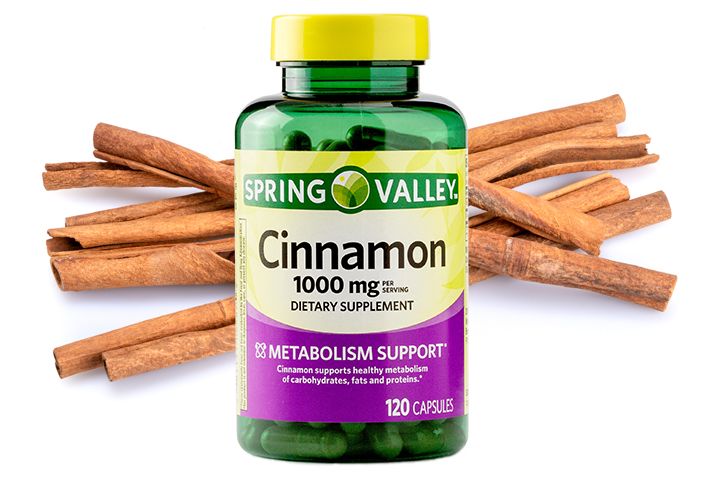Cinnamon, derived from the inner bark of trees belonging to the genus Cinnamomum, is a popular spice known for its distinct aroma and flavor. Beyond its culinary uses, cinnamon has been valued for its medicinal properties for centuries, with a rich history in traditional medicine systems such as Ayurveda and Traditional Chinese Medicine (TCM). Cinnamon supplements, typically made from powdered cinnamon bark or extracts, have gained widespread popularity due to their potential health benefits. This comprehensive guide explores the extensive advantages of cinnamon supplements, encompassing traditional uses, scientific research, and practical considerations for those interested in integrating this herbal remedy into their health regimen.
Rich in Antioxidants
One of the key benefits of cinnamon supplements lies in their high antioxidant content. Cinnamon is rich in polyphenols, particularly flavonoids and phenolic acids, which possess potent antioxidant properties. Antioxidants help neutralize harmful free radicals in the body, reducing oxidative stress and inflammation. By combating oxidative damage at the cellular level, cinnamon supplements may help protect against chronic diseases such as heart disease, cancer, and neurodegenerative disorders. Incorporating cinnamon supplements into your diet may contribute to overall health and longevity by promoting cellular health and reducing the risk of oxidative damage-related conditions.
Blood Sugar Regulation
Cinnamon supplements are renowned for their ability to help regulate blood sugar levels, making them particularly beneficial for individuals with diabetes or insulin resistance. Cinnamon contains bioactive compounds such as cinnamaldehyde and procyanidins, which have been shown to improve insulin sensitivity and enhance glucose metabolism. Studies have demonstrated that cinnamon supplementation can lead to lower fasting blood sugar levels, reduced insulin resistance, and improved glycemic control in individuals with type 2 diabetes. Additionally, cinnamon supplements may help lower postprandial blood sugar spikes by slowing down the absorption of carbohydrates in the digestive tract. Incorporating cinnamon supplements into your daily routine may help support blood sugar regulation and reduce the risk of complications associated with diabetes.
Anti-inflammatory Effects
Cinnamon supplements exhibit potent anti-inflammatory effects, which contribute to their overall health-promoting properties. Chronic inflammation is linked to the development of various diseases, including heart disease, arthritis, and certain cancers. Cinnamon contains compounds such as cinnamaldehyde and cinnamic acid, which possess anti-inflammatory properties. These compounds help reduce inflammation in the body by inhibiting the production of pro-inflammatory cytokines and enzymes. By mitigating inflammation, cinnamon supplements may help alleviate symptoms of inflammatory conditions such as arthritis, promote joint health, and support overall well-being.
Heart Health Support
Research suggests that cinnamon supplements may offer benefits for heart health and cardiovascular function. Cinnamon has been shown to help lower cholesterol levels, particularly LDL (bad) cholesterol, while increasing HDL (good) cholesterol levels. Additionally, cinnamon supplements may help reduce triglyceride levels and improve lipid profile parameters, contributing to a lower risk of heart disease. Cinnamon’s anti-inflammatory and antioxidant properties may also help protect against atherosclerosis, reduce the risk of blood clots, and improve endothelial function. Incorporating cinnamon supplements into your diet may help support heart health, reduce cardiovascular risk factors, and promote overall cardiovascular well-being.
Cognitive Function and Brain Health
Emerging research suggests that cinnamon supplements may have benefits for cognitive function and brain health. Cinnamon contains bioactive compounds such as cinnamaldehyde and cinnamic acid, which have neuroprotective properties. These compounds help protect brain cells from oxidative stress and inflammation, reducing the risk of neurodegenerative diseases such as Alzheimer’s and Parkinson’s disease. Additionally, cinnamon supplements may help improve cognitive function, memory, and concentration by enhancing blood flow to the brain and supporting neurotransmitter activity. Incorporating cinnamon supplements into your daily regimen may help promote brain health, preserve cognitive function, and reduce the risk of age-related cognitive decline.
Practical Considerations and How to Take Cinnamon Supplements
Cinnamon supplements are available in various forms, including capsules, tablets, extracts, and powders. The appropriate dosage may vary depending on the specific product and individual health needs. It’s essential to follow the recommended dosages provided by supplement manufacturers or consult with a healthcare professional for personalized guidance.
While cinnamon supplements are generally safe for most individuals when taken as directed, some people may experience side effects such as allergic reactions or gastrointestinal upset. Cinnamon supplements may interact with certain medications, particularly blood thinners and diabetes medications, so it’s important to consult with a healthcare provider before starting supplementation, especially if you have any underlying health conditions or are taking medication.
Conclusion
Cinnamon supplements offer a wide range of potential health benefits, from antioxidant and anti-inflammatory effects to blood sugar regulation, heart health support, and cognitive function enhancement. With its rich history in traditional medicine and growing body of scientific research, cinnamon stands as a valuable and versatile herbal remedy. By incorporating cinnamon supplements into your health regimen, you can harness the therapeutic benefits of this aromatic spice to support various aspects of health and well-being. However, it’s important to use cinnamon supplements responsibly and consult with a healthcare professional if needed to ensure safe and effective use.

